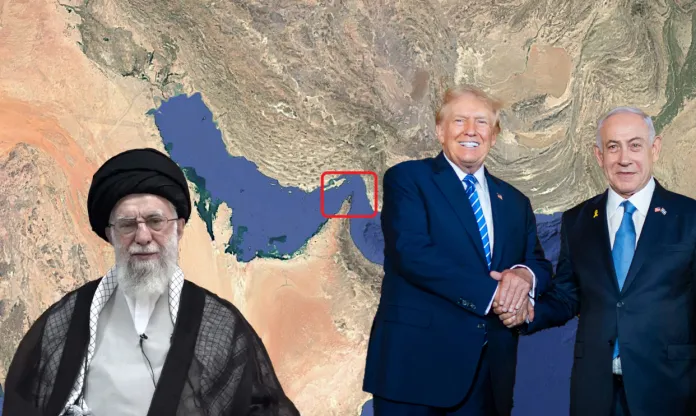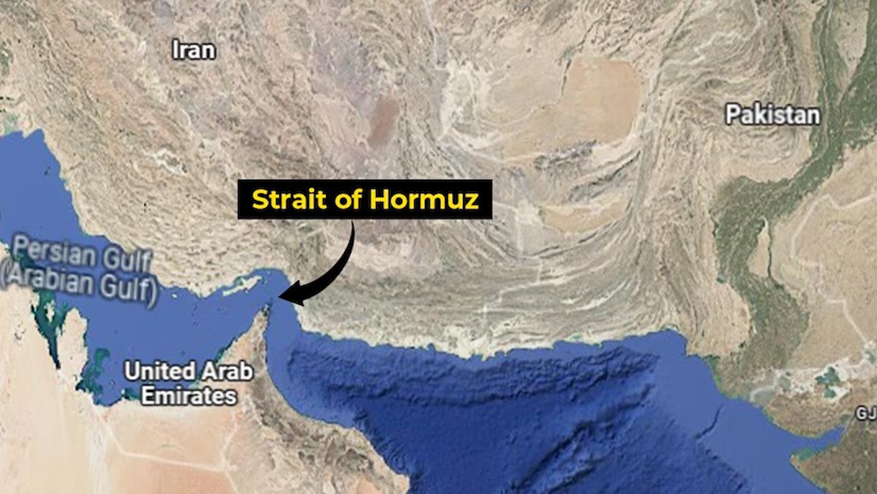Iran’s Parliament has approved the closing of the Strait of Hormuz, though the final decision will be taken by the Supreme National Security Council. After the US struck three Iranian military sites, all eyes are now on Iran’s potential retaliation. In the range of options Iran has, possibly the most discussed is the threat to block the Strait of Hormuz. So far, most experts had agreed that Iran would not go that far. America’s actions seemed to have changed that.
How India Be Affected If Strait Of Hormuz Is Blocked?
Why In News
- Iran’s Parliament has approved the closing of the Strait of Hormuz, though the final decision will be taken by the Supreme National Security Council. After the US struck three Iranian military sites, all eyes are now on Iran’s potential retaliation. In the range of options Iran has, possibly the most discussed is the threat to block the Strait of Hormuz. So far, most experts had agreed that Iran would not go that far. America’s actions seemed to have changed that.
- Iran’s foreign minister Seyed Abbas Aragchi, when asked by reporters about Hormuz, said simply that “a variety of options are available with Iran”.
- US Secretary of State Marco Rubio called on China to encourage Iran to not shut down the Strait. “I encourage the Chinese government in Beijing to call them about that, because they heavily depend on the Straits of Hormuz for their oil. If they do that, it will be another terrible mistake. It’s an economic suicide for them if they do it.”
What Is The Strait Of Hormuz
- A strait is a narrow water body connecting two larger bodies of water. The two water bodies that the Strait of Hormuz connects are the Persian Gulf and the Gulf of Oman, which further flows out into the Arabian Sea. Thus, countries around the Persian Gulf like Iran, Saudi Arabia, and UAE, which happen to be major oil producers, depend upon the Strait of Hormuz to access the open seas.
- Strait is in the territorial waters of Iran and Oman, and accounts for a big bulk of the world’s oil trade. Strait is not very wide. It is just 33 km at its narrowest point, while the width of the shipping lane in the to and fro direction is only 3 km. This makes it easy to block the Strait, or attack the ships passing through.
Why Is The Strait Of Hormuz So Important
- According to the US Energy Information Administration (EIA), “Flows through the Strait of Hormuz in 2024 and the first quarter of 2025 made up more than one-quarter of total global seaborne oil trade and about one-fifth of global oil and petroleum product consumption. In addition, around one-fifth of global liquefied natural gas trade also transited the Strait of Hormuz in 2024, primarily from Qatar.”
- Because of its geographic location, there is no sea route alternative to the Strait of Hormuz. So if the passage of ships through the strait were to be disrupted, it would have ramifications for oil and LNG trade worldwide, and prices would shoot up. Any fluctuation in oil prices has a trickle-down effect on the prices of many other goods and commodities.
- The alternatives to the Strait of Hormuz involve transporting oil overland to ports on the Red Sea or on the Gulf of Oman. The EIA states that Saudi Arabia’s Aramco “operates the 5 million barrels per day East-West crude oil pipeline, which runs from the Abqaiq oil processing centre near the Persian Gulf to the Yanbu port on the Red Sea”, while the UAE operates a “1.8 million-b/d pipeline linking onshore oil fields to the Fujairah export terminal in the Gulf of Oman.” For comparison, the flow through the Strait of Hormuz in 2024 was 20 million barrels per day.
- Also, if a danger is perceived in the Strait of Hormuz region, insurances and security measures will go up, making shipping more expensive for all parties involved.
How Likely Is Iran To Block The Strait Of Hormuz
- Blocking or disrupting the Strait of Hormuz can mean laying mines in the sea, attacking passing ships with missiles and bombs, detaining ships, or carrying out cyberattacks on the vessels.
- Iran has never blocked the Strait, amid any war or conflict. In the 1980s, during the Iran-Iraq war, both nations attacked ships passing through the strait, but did not stop traffic.
- This is because Iran depends on the strait for its own trade too, and disrupting it will hurt both itself and its friends. Iran’s neighbours, including the powerful Saudi Arabia, are slowly improving ties with it, and Tehran would not want to alienate them.
- Also, because of Western sanctions, Iran has few customers for its oil, which China thus buys in bulk at heavy discounts. A disruption in the strait will disrupt Iran ally China’s energy needs.
- A major factor staying Iran’s hand so far had been that disturbing global trade would be one sure way to get the US directly involved militarily. But since the US has now already involved itself militarily, this deterrence is to a degree spent.
- US has its 5th Fleet stationed in Bahrain, and can respond quickly to Iran’s activities in the region. However, by the time ship movement is restored to normal, much chaos would already have been caused.
How Will India Be Affected
- EIA estimates “84% of the crude oil and condensate and 83% of the liquefied natural gas that moved through the Strait of Hormuz went to Asian markets in 2024. China, India, Japan, and South Korea were the top destinations for crude oil moving through the Strait of Hormuz to Asia, accounting for a combined 69% of all Hormuz crude oil and condensate flows in 2024.”
- So, India will be affected. India also buys oil from Russia, the US, Africa, and Latin America, so it is not that it won’t be able to get enough oil and gas. The problem will be about the price fluctuation.


















